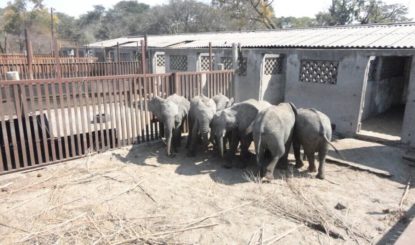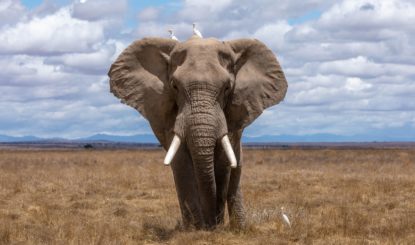Media release: CITES-CoP18 misses a golden opportunity to protect elephants: EU is the main culprit
The voting results that have decided the future of elephants have left a bitter after-taste. While the proposals calling for the reopening of the international ivory trade were overwhelmingly rejected, the Parties of the international Convention at CITES-CoP18 did not take the necessary steps to provide the full protection to African elephants. This went contrary to the view of the majority of African countries in which the species lives.
GENEVA – The EU, which is made up of a 28-country bloc vote, ultimately determined the outcome. The EU claimed that the range countries of the species were against stronger protection. This is a misrepresentation of facts since the proposal in question was submitted on behalf of countries representing 70% of the African elephant range.
Furthermore, the Chairman of the Committee in which the debate raged, failed to demonstrate the impartiality expected of him by often giving the floor to the countries of southern Africa, all who favour reopening the trade in ivory. In contrast, the proposal to ban trade, which was submitted by the other African range states under the banner of the African Elephant Coalition (AEC), was dealt with in just 20 minutes. It is appalling that CITES member states did not give the issue of the African elephant’s survival the importance it deserves.
Fondation Franz Weber will continue to monitor the final days of the Conference of the Parties, complete with its unexpected twists and turns. The meeting in Geneva wraps up on August 28th and nothing is set in stone until the final day of the CoP18.
The debate on the export of live baby elephants, in particular, may not yet be over. The historical result in favour of a ban of exporting live elephants outside of Africa, which took place on Tuesday, August 18, has created quite a stir in Geneva, and continues to provoke intense debate among Parties.
Further information
Project page: End trading in endangered species!
Infoflyer CITES Proposals elephants: English, French



